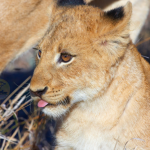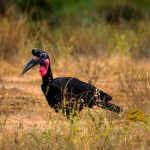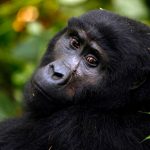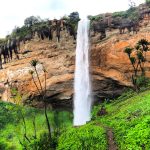Travel Tips For East Africa: Uganda, Rwanda, Kenya, and Tanzania
Travel Tips for East Africa; A trip into the top East Africa travel destinations of Uganda, Rwanda, Kenya, and Tanzania is one that is incomparable. The countries have different charms, wildlife, and cultural experiences awaiting any traveler. Here are some country-specific travel tips that would help you make your most of the safari or exploration you are about to embark on.
TRAVEL TIPS FOR UGANDA
With diverse landscapes ranging from humid rainforests to savannah plains, Uganda “The Pearl of Africa” remains one of the best destinations for gorilla trekking, birding, and safaris. Let’s go over the details.
1. Visa and Entry Requirements
- Most nationalities need a visa, which is available, and at ease, online in advance. Consider the East African Tourist Visa, allowing travel in Uganda, Rwanda, and Kenya on one entry.
- Your passport should be valid at least six (6) months from the time of visa application.
- Visa Fees is 50 USD for Ugandan Tourist Visa and 100 USD for the East African Tourist visa
- Uganda also issues the East African Tourist Visa, which covers entry to Uganda, Rwanda, and Kenya. (Please note that this visa does NOT grant entry into the United Republic of Tanzania, Burundi or South Sudan)
- The holder of the East Africa Tourist Visa shall also be allowed to move out of the Republic of Kenya, the Republic of Rwanda, and the Republic of Uganda and return without having to pay for another visa. This will only be applicable for the validity period of the visa (90 days from visa approval).
- The Embassy issues single entry visas for a maximum of 3 months (90 days) and multiple entry visas for a maximum of 6 months. Any extensions of this period, can be applied for at the Immigration Office in Kampala.
How to Apply for a Ugandan Visa
All persons going to Uganda for holiday, tourism, business, study, visit, and/or medical shall apply and obtain a visa online. Applications should be filled at the following link: https://visas.immigration.go.ug
Note: Applicants should apply for a visa using the E-Visa portal; Issues regarding visas can be referred to the following Email: Kkasibayo@ugandaembassyus.org and please leave your name and a reliable call back number.
Visa Requirements (Visas to Uganda)
You will also be required to upload proof of yellow fever vaccination among other requirements such as a copy of your passport bio-data page, most recent passport photograph of applicant, and travel itinerary in place of an invitation letter.
Issuance of visas at Uganda Missions Abroad (Embassies):
E-visas and e-permits are centrally approved but can be personalized at Point of Entry or Missions Abroad that have been equipped with the e-immigration system; The Ugandan Embassy Washington, DC provides this personalization visa service for travelers that prefer not to receive their visas upon arrival in Uganda; This service is offered between the hours of 10:00 – 15:00 hrs.
NOTE:
- Ensure your Visa is cleared and a copy of confirmation readily available and accessible with you when required.
- Please Note that there will be no refunds made for Payments made into the Embassy Bank Account
2. Health Precautions and Safety
Vaccination: Yellow fever vaccination is compulsory. Other recommended vaccinations are typhoid, hepatitis A & B, and tetanus.
Malaria Prevention: Uganda has a high risk for malaria. Take antimalarial medication and use insect repellents and bed nets.
Travel Insurance: Do ensure that you have taken medical insurance in case of emergencies, especially when trekking or indulging in some kind of adventurous stuff.
3. Essentials to Pack
- Light clothes for the daytime, but also bring a warm jacket in case of chilly mornings and evenings, especially at the time of gorilla trekking in Bwindi.
- Strong hiking boots are essential since one will be trekking.
- A rain jacket and waterproof rucksack if it rains suddenly.
- Binoculars and a good camera for spotting wildlife.
- Power adapter: Uganda uses a Type G plug, similar to the one used in the UK. Bring the relevant adapter along.
4. Local Culture and Etiquette
Greetings: People in Uganda are so friendly and hospitable. Greet them by handshaking and show respect to the elders.
Photography: Always ask for permission before taking a picture of someone. This is very critical when taking photos of rural people in their villages.
Dress Code: The Ugandan nation is still relatively conservative. Dress modestly, especially if you happen to visit a religious place of worship or rural areas.
5. Local Currency and Payment
- The Local Currency is the Ugandan Shilling, abbreviated as UGX. Credit cards are accepted in most urban areas, but when traveling to some rural areas, have some cash with you.
- You will be able to withdraw money from an ATM at the airport, as well as in major towns on your route along your safari. Note, please, that we advise you to inform your bank about the fact that you are going to use an ATM or a credit card.
- Our Local Currency in Uganda is in Ugandan Shillings (Ugx:/Shs.) in denominations of 50,000/ 20,000 / 10,000 / 5,000 / 2,000 / 1,000 notes / (1,000 /500 / 200 / 100 / 50 coins); Incase you wish to have some local currency; the assigned tour driver-guide can always lead you to the nearby forex point.
- Full ATM services are available in major towns and cities, but make sure your card can access international services.
6. Getting Around
- Boda-bodas: These are motorbike taxis and offer a quick way of getting around cities like Kampala but make sure to put on a helmet for safety.
- Safaris: As a recommendation, it is good to book private safaris from reputable firms so that it makes the tour personal. Arcadia Safaris shall take you on an expedition through Uganda’s game and culture.
7. Why have an Armed Ranger on Board?
Armed rangers take on routine patrol within the park to ensure that everything is okay on both parties: Tourists, Drivers/Guides, and Wildlife as well. This is a must in Kidepo National Park and in Pian-Upe, though other parks can be explored even without an armed guard/ranger on board.
8. Client and Driver-Guide’s Safety
The assigned driver-guide normally keeps in touch with the park authority, in case of any suspicious person/s trailing him and client. Within the parks, there is also a routine patrol by armed rangers for the safety of tourists, driver-guide as well as the wildlife.
9. Safari Vehicles
We provide and use either safari van or safari land-cruiser, depending on whichever is available on our client’s date or client’s preference, and all our cars are comfortable enough and fully supplied with Free Wi-Fi internet for our clients to stay connected wherever they are. As Arcadia Safaris, we always endeavor to see that all our safari vehicles are serviced and well maintained. However, in the unfortunate event that the car breaks down and a rescue becomes necessary, we do arrange and send a rescue car to ensure minimal disruption and discomfort. Travel Tips for East Africa
10. Safari Clothing and Shoes
Try to keep it simple, candid, and practical for your stable comfort while on safari. If your safari activities include hiking, gorilla, and chimpanzee trekking, we advise packing trekking shoes or jungle boots for hiking, long-sleeved shirts to protect you from thorny wild plants and insects, long stockings-if putting on shorts, comfortable jeans, pant/trousers. Others may include a hat or cap, some comfortable shorts, dresses, blouses-for female, and a rain jacket also comes in quite candy.
NB: Arcadia Safaris provide all our clients and the driver guide with a branded safari hat/cap, and an umbrella throughout the safari/trip period.
11. Food
Uganda being an agricultural economy boasts of a number of options to select from in terms of food while on your trip. Almost everybody can have something to choose from, be it gluten-free diet, vegetarian, or halal. There will always be something offered for one’s preference, and for those who are not on any diet restriction, you are even luckier.
Note: We kindly encourage you to always clarify any diet restrictions and preferences while booking with us so that we share the same information with the accommodation facilities that we shall be using for stay during your safari; We also let the assigned driver-guide to know about it so as to follow and emphasize while on the ground. Travel Tips for East Africa
12. Tipping Etiquette
The difficult question we always get from our clients as to how much to Tip a Driver-Guide, Park Ranger, Waitresses or Waiters. As it depends largely on the level of gratitude one has felt and his/her budget, nonetheless it could be 10, 15, 20 etc. dollars. Per day or at the end of the trip-encouraged as you say “Goodbye”
NB: Tipping is not compulsory but rather something considered as a way of appreciation for good service
13. Wi-Fi and Internet
Most of our recommended Hotel/Camps and Lodges have Wi-Fi internet access and. However at times the connection speed may not be so good. Whenever you are at these accommodations it will be possible for you to keep in touch with family and friends via emails, Skype, and other communication modes of your preference.
Please note that at Arcadia Safaris, we value you being connected wherever you are during your trip; that’s why all of our Safari vehicles have FREE Wi-Fi Internet for you.
14. Gifts and Handouts
If you want to bring some gifts / handouts to give to the children and community members that you may go through during the journey, please note that sweets, chocolate, or any edible, though they create more pleasure, are not encouraged. Things like clothes, shoes, sandals, scholastic materials, and so many others are in high demand. Travel Tips for East Africa
15. Patience
And last but most importantly, kindly don’t forget to pack some patience on you. The African wilds are just so rich and captivating, but again remember that absolutely nothing is predictable. Your impatience could cost you that pride of lions, that leopard, that shoebill stork among others. Travel Tips for East Africa
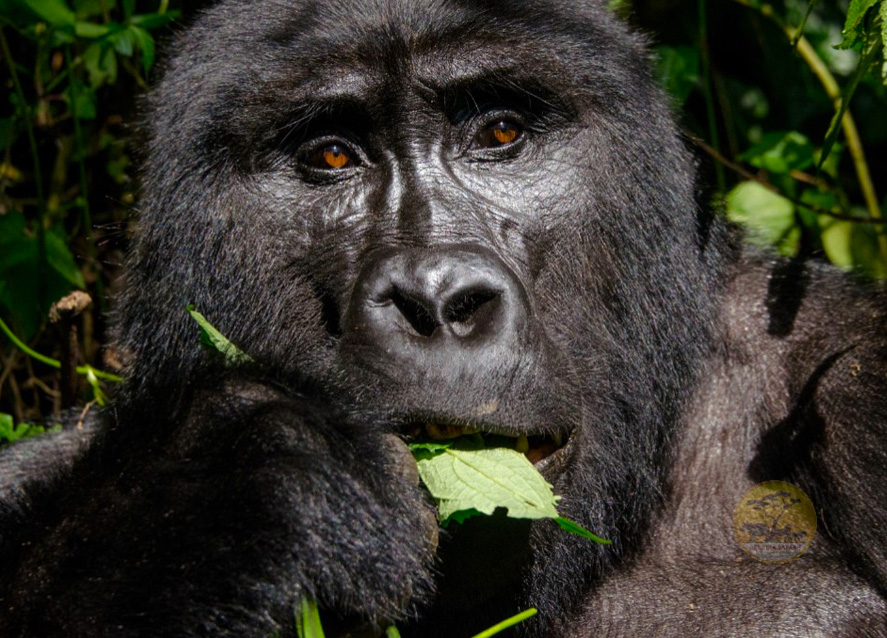
TRAVEL TIPS FOR RWANDA
Rwanda is variously known as the “Land of a Thousand Hills,” and the last place you’d imagine finding heartwarming hospitality. From gorilla treks to historical tours, here’s all you need to know:
1. Visa and Entry Requirements
Most nationalities get a visa upon arrival in Rwanda, or you can get the East African Tourist Visa like you did in Uganda. Your passport should have at least a six-month validity period.
2. Health Precautions
There will be a requirement for a yellow fever vaccination on your entrance. You will also need to take precautions regarding malaria. Drink bottled or purified water. Many waterborne diseases are contracted through poorly treated water.
3. Currency and Payments
The local currency is the Rwandan Franc, abbreviated as RWF. Credit cards are widely accepted in Kigali but might require cash in rural areas. Most major cities have ATMs. Keep some small bills for tipping or at markets.
4. Best Time to Visit
Rwanda enjoys a good climate throughout the year, but in Volcanoes National Park, the dry seasons from June to September and December to February are most pleasant for gorilla trekking. This is also the best time to visit Akagera National Park for wildlife viewing.
5. What to Pack
- Lightweight clothes for the warm days; include a jacket for cooler evenings.
- Sturdy walking shoes for gorilla trekking.
- Gloves and rainproof jacket for the frequent misty treks through the rainforest.
- A pair of good binoculars to set sight on birds in Nyungwe Forest.
- Insect repellent and sunscreen.
6. Culture and Etiquette
Rwanda is a very clean and organized country; as such, make sure not to litter at all, with the consequences being very strict. Greet everybody with a handshake, respect the elders. Avoid discussing sensitive topics like the 1994 genocide; only discuss it with Rwandans if it’s initiated by them. A very humbling experience and highly recommended is visiting the Kigali Genocide Memorial.
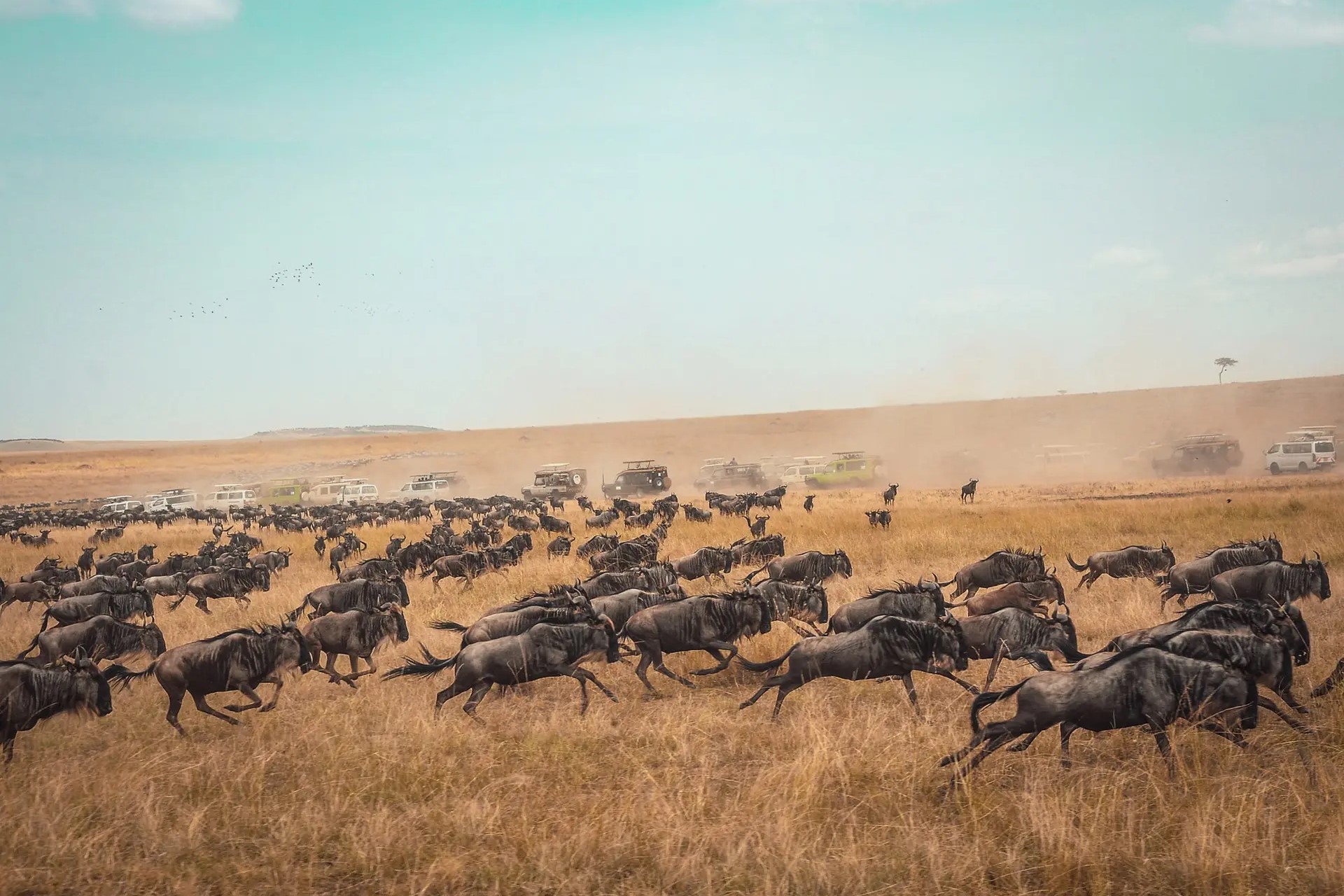
TRAVEL TIPS FOR KENYA
Kenya, with its teeming wildlife and colorful cultures, is a dream destination for travelers. From the Maasai Mara to the bustling streets of Nairobi, here’s how to prepare:
1. Visa and Entry Requirements
Kenya requires an E-Visa to be issued before arrival or, alternatively, uses the East African Tourist Visa if the neighboring countries are to be visited. Always check entry requirements in accordance with your nationality.
2. Health Precautions
A yellow fever vaccination is recommended for all most travelers. Besides, malaria is a risk, particularly along the coast and in rural areas. It is necessary to bring with you insect repellent and antimalarial medication.
3. Currency and Payments
The local currency is the Kenyan Shilling (KES). Most cities, including Nairobi and Mombasa, have different types of ATMs, and credit cards are widely accepted in most tourist facilities. Safaris or rural travel need to have some cash on hand for tips and local purchases.
4. Best Time to Visit
It is best to go on Kenyan wildlife safaris, especially the most famous, Maasai Mara, during the dry season from June to October. During this period, one can also witness the Great Migration where millions of wildebeests and zebras cross the Mara River.
5. What to Pack
- Comfortable safari gear in muted colors.
- A wide-brimmed hat and sunscreen protection from the intense sun.
- A good pair of walking shoes for countryside walks.
- A camera with sufficient storage for beautiful views and wildlife.
- Swimwear if you plan to visit the coastal towns, such as Diani or Malindi.
6. Culture and Etiquette
Kenya is a country of many cultures and traditions. The most famous representatives are the Maasai and Samburu people. Whenever taking photos of locals, especially the Maasai, always ask for permission. In any case, dress modestly in rural areas. A greeting given with a handshake is greatly valued, as Kenyans happen to be warm and friendly.

TRAVEL TIPS FOR TANZANIA
From Serengeti to Ngorongoro Crater and the most enchanting beaches of Zanzibar, Tanzania easily mingles the animal and cultural kingdoms. Here’s how you can make the most of your trip: Travel Tips for East Africa
1. Visa and Entry Requirements
Many nationalities are provided with visas on arrival in Tanzania, but applying online in advance can save you a long wait. The East Africa Tourist Visa is not valid in Tanzania, so if you’re crossing into the country, you will need a visa.
2. Health Precautions
A yellow fever vaccination certificate is required, particularly if you are arriving from a country with yellow fever. There is a risk for malaria, hence prevention is required. Insect repellent should be carried, and mosquito nets used at night.
3. Currency and Payments
The Tanzanian Shilling (TZS) is the local currency. You can find ATMs at major cities, such as Dar es Salaam and Arusha. Major credit cards are accepted in most hotels and lodges, while cash is still king in rural areas.
4. Best Time to Visit
The weather is normally dry from June to October and December to March of the year. This is, for instance, an excellent period for wildlife safaris in Serengeti and Ngorongoro Crater. If you will be going on beach vacations, Zanzibar is best visited between July and October or December to March.
5. What to Pack
- Comfortable, light clothing for safari, and warm layers for early morning game drives
- A pair of sturdy shoes for hiking or walking safaris.
- Swimmers, for either your beach getaway in Zanzibar or plunging into the Chemka Hot Springs.
- A good camera to shoot the great wildlife and landscapes of Tanzania.
- Sunscreen and insect repellant to protect you in bush and coast alike.
6. Culture and Etiquette
Respectfully, Tanzania is a majority Muslim country, and one ought to strive to dress modestly when going out into the public. Greet people wherever one happens to go-it is rude not to do so-and when visiting the local villages, it is considered politeness to bring with you small presents of things like food or any other form of provisions. The pace of life is easy, reflected in one of the most common phrases, “pole pole,” a loose translation of which is “slowly.”.
Remarks on Travel Tips for East Africa
These tips shall help you to travel through Uganda, Rwanda, Kenya, and Tanzania with much ease, and more importantly, in comfort. Each of these countries possesses a combination of both adventure, culture, and wildlife. From trekking gorillas in Uganda and Rwanda to the Great Migration in Kenya and Tanzania, these travel tips shall guide you through smooth navigation.


